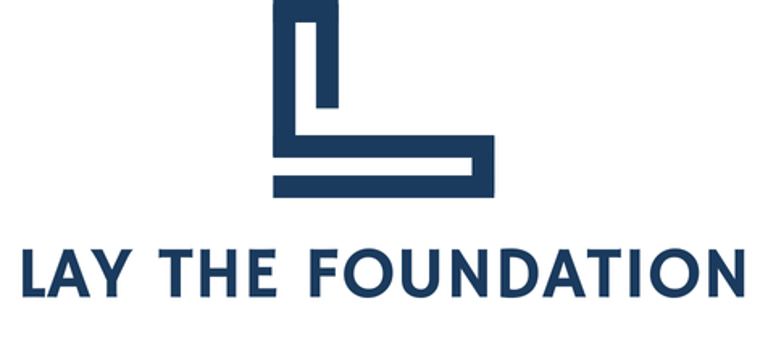Understanding Loss Control: 7 Reasons Why It’s Crucial for Insureds and Insurance Companies
Lay the Foundation Team
8/4/20244 min read


What is Loss Control?
Loss control is a multifaceted approach aimed at preventing or minimizing financial losses within organizations or for individuals. It encompasses a range of practices and strategies designed to mitigate risk and ensure a safer environment. At its core, loss control focuses on reducing both the frequency and severity of potential losses. While it is closely associated with the insurance industry, its applications extend across various sectors to optimize risk management.
The primary objectives of loss control are straightforward: decrease the likelihood of incidents that could lead to losses and limit the impact of any that do occur. Achieving these objectives requires a combination of proactive and reactive measures tailored to an organization's specific needs. One of the most common techniques is safety training, which aims to educate employees on best practices that minimize hazards in the workplace. This could include everything from proper handling of machinery to ergonomic adjustments that reduce physical strain.
Regular equipment maintenance is another critical component of loss control. Ensuring that machinery and tools are in optimal working condition can prevent accidents caused by equipment failure. Risk assessments are also vital; they identify potential hazards and evaluate their potential impact, allowing for more targeted and effective risk management strategies. Additionally, compliance with legal standards ensures that organizations meet or exceed regulatory requirements, thereby reducing the risk of legal repercussions and associated financial losses.
For instance, in the manufacturing industry, a comprehensive loss control program might include routine inspections of machinery, safety drills, and strict adherence to industry regulations. Similarly, in the healthcare sector, loss control can involve rigorous sanitation protocols, staff training on handling hazardous materials, and thorough patient safety measures.
Ultimately, loss control serves as a cornerstone of risk management, empowering organizations to safeguard their assets, employees, and reputation. The principles of loss control, though integral to the insurance industry, offer invaluable benefits when applied across different sectors, fostering a proactive culture of safety and preparedness.
Why Loss Control is Important for Insureds
For individuals and organizations holding insurance policies, the importance of loss control cannot be overstated. Through proactive risk management, the likelihood of incidents such as accidents, injuries, and property damage can be significantly reduced. This means creating safer environments that protect both people and assets. Whether it's implementing stringent safety protocols in a workplace or conducting regular maintenance checks on property, effectively managing risks can prevent a great deal of harm.
Another critical aspect to consider is financial stability. Preventing losses helps maintain financial health by avoiding unexpected expenses related to damages or liability claims. For example, a manufacturing company that consistently adheres to loss control practices may avoid costly machinery breakdowns or workplace injuries, which could otherwise lead to substantial financial strain. Similarly, homeowners who invest in loss control measures, such as installing fire alarms and security systems, can avert potential disasters and the accompanying financial burden.
Moreover, a robust loss control program can result in lower insurance premiums. Insurance companies often reward policyholders who actively manage and mitigate risks. For instance, a retail store that employs security personnel, utilizes CCTV cameras, and follows stringent inventory management practices is likely to be viewed as a lower risk by insurers. Consequently, the store could benefit from reduced insurance premiums. Similarly, organizations with comprehensive workplace safety programs may see a decline in insurance costs, as they present a lower risk to insurers.
Consider a real-world scenario where a construction company implemented a comprehensive loss control strategy, encompassing worker safety training, regular equipment inspections, and adherence to industry standards. This proactive approach not only significantly reduced the rate of workplace accidents, but also translated to lower insurance premiums. The company was able to reinvest the savings into further enhancing their safety measures, creating a virtuous cycle of safety and financial prudence.
The benefits of loss control extend beyond immediate safety and financial gains. It fosters a culture of responsibility and diligence, ensuring that individuals and organizations operate within safer, more predictable environments. By prioritizing loss control, policyholders are not just protecting their assets but also securing a stable and sustainable future.
Why Loss Control is Important for Insurance Companies
Insurance companies place significant emphasis on effective loss control measures due to their substantial impact on the industry’s stability and profitability. One of the primary reasons for this focus is the reduction in claims. Implementing robust loss control programs enables insurers to mitigate the frequency and severity of claims, resulting in more predictable and manageable payouts. Industry data corroborates this, indicating that proactive loss control can reduce claim incidents by up to 25%. This reduction not only lowers immediate financial outlays but also stabilizes the loss ratio, which is vital for the company’s financial health.
Moreover, loss control measures foster better customer relationships. When insurers actively assist clients in minimizing risks, it demonstrates a commitment to their well-being and business continuity. This proactive approach strengthens trust and loyalty, leading to higher client retention and satisfaction rates. According to a study by McKinsey & Company, customers who receive risk management support from their insurers are 30% more likely to renew their policies. This enhanced client relationship is not only beneficial for customer retention but also contributes to a positive reputation and brand loyalty in a competitive market.
Long-term profitability is another crucial aspect influenced by effective loss control measures. By curbing losses, insurers can sustain financial stability and allocate resources more efficiently. Loss control reduces expenses related to claim settlements, allowing for better allocation of capital and investment in growth initiatives. For instance, a report from the Insurance Information Institute points out that insurers with well-managed loss control programs often see a 10-15% increase in profit margins over time. This consistent profitability drives the company’s ability to weather economic fluctuations and continue providing reliable coverage to its clients.
Inspectors
Reach out to our trusted team of inspectors to help ensure safe building conditions.
Lay the foundation
Request inspection
laythefoundation.team@gmail.com
708-580-6580
© 2024. All rights reserved. Privacy Policy. Terms and Conditions.


